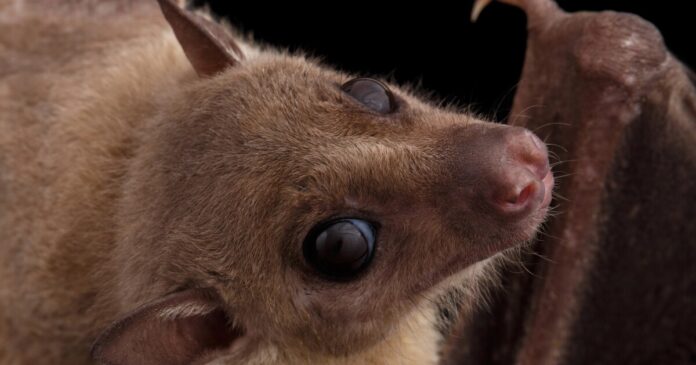Following on from last year’s 34th First Annual Ig Nobel Prize ceremony at MIT, the 35th First Annual Ig Nobel Prize night took place at Boston University on September 18, celebrating real research with delightfully sideways investigative questions – and unexpectedly useful answers.
Theme of the night: digestion, and the proceedings even featured a mini-opera called The Plight of the Gastroenterologist, about – not surprisingly – gut specialists and their patients. You can watch the entire Ig Nobel Prize ceremony below, or skip ahead to read the winners for 2025. From pizza-eating lizards to tipsy bats, these winners capture the heart of science: curious minds following wonderfully weird paths to answer questions most of us would never think to ask.
The 35th First Annual Ig Nobel Ceremony (2025) FULL SHOW
Literature Prize – US (1980)
One fingernail, 35 years, a lifetime of data. The late physician William B. Bean measured a single thumbnail’s growth from his early 30s into his late 60s, publishing progress reports in 1953, 1962, 1968, 1974, 1976 and 1980. The numbers showed growth slows with age and his long study documented how disease, temperature and hand use can nudge nail biology. It’s obsessively simple science that aged into a tiny classic.
Psychology Prize – Poland, Australia, Canada (2021)
Tell people they’re smart, watch narcissism rise – briefly. Marcin Zajenkowski and Gilles Gignac gave 364 people flattering IQ-related feedback and tracked changes in narcissism levels. The compliments resulted in a temporary spike in feelings of uniqueness and specialness, demonstrating how praise can inflate ego in the short term – even outside clinical narcissism. The study was published in 2021.
Nutrition Prize – Nigeria, Togo, Italy, France (2023)
Are lizards pizza fiends at heart? At a seaside resort in Togo, Daniele Dendi, Gabriel H. Segniagbeto, Roger Meek and Luca Luiselli studied nine rainbow lizards (Agama agama) given the choice between a four-cheese pizza and a pizza loaded with toppings, then documented the reptiles’ foraging strategies. The point of the study wasn’t to assess whether the animals thought pineapple belonged on pizza or not; it was to investigate how urban and tourist settings – where calorie-dense food scraps abound – impacted wildlife diets and affected animal behavior and health.
Pediatrics Prize – US (1991)
Garlic in, garlic out – and babies can tell. Back in 1991, Julie Mennella and Gary Beauchamp fed nursing mothers garlic, then had infants feed while observers recorded behavior. The breast milk changed aroma, and babies adjusted feeding – some even nursed longer – showing that flavors from a mother’s diet carry into milk and could shape early taste learning. On the plus side, no vampires were detected in the baby cohort.
Biology Prize – Japan (2020)
Paint cows like zebras, get fewer bites. A team led by Tomoki Kojima painted black-and-white stripes on cattle, then counted biting flies and fly-repelling behaviors (tail flicks, skin twitches) versus unpainted controls. Result: Significantly fewer fly landings and less defensive shivering on the striped cows – making this absurd disguise an elegant, low-tech pest hack. (Incidentally, this study was cited in one of my animal signaling behavior classes in 2022.)
Chemistry Prize – USA, Israel (2016)
The “Teflon diet” that is emphatically not a diet. Rotem Naftalovich, Daniel Naftalovich and Frank Greenway proposed ingesting small, nondigestible PTFE (Teflon) pellets to bulk up meal volume and increase satiety without calories, testing the idea in lab models and even patenting the approach two years later. It’s polymer chemistry meets appetite science – and a perfect Ig recipient: Memorable, discussion-sparking and comes with a “don’t try this at home” recommendation.
Peace Prize – Netherlands, UK, Germany (2018)
The benefits of hitting Duolingo while buzzed. Fritz Renner, Inge Kersbergen, Matt Field and Jessica Werthmann conducted a controlled experiment in which 50 German students learning Dutch were given either water or vodka before conversing with native Dutch speakers. The Dutch audience – blinded to who had received which drink – ultimately judged the alcohol group more fluent, most likely because mild alcohol reduces anxiety. You could say it gave the Germans, quite literally, Dutch courage.
Engineering Design Prize – India (2022)
When shoe stink ruins a perfectly good rack. Vikash Kumar and Sarthak Mittal treated smelly shoes as an engineering-experience problem: How does odor undermine the “good experience” of a shoe rack, and could better design nix the stink? Tough gig, but nonetheless some admiral research into how engineering could improve life’s least glamorous storage unit.
Aviation Prize – Colombia, Israel, Argentina, Germany, UK, Italy, USA, Portugal, Spain (2010)
Tipsy bats fly worse and echolocate poorly. Francisco Sánchez, Mariana Melcón, Carmi Korine, and Berry Pinshow found that feeding Egyptian fruit bats (Rousettus aegyptiacus) ethanol – the kind they’d encounter in overripe fruit – impaired flight control and dampened echolocation performance. A neat reminder that animals navigating on the edge of physics can be thrown off course by a boozy session – much like humans stumbling home from the bar.
Physics Prize – Italy, Spain, Germany, Austria (2025)
Why your cacio e pepe clumps. Giacomo Bartolucci, Daniel Maria Busiello, Matteo Ciarchi, Alberto Corticelli, Ivan Di Terlizzi, Fabrizio Olmeda, Davide Revignas and Vincenzo Maria Schimmenti analyzed the phase behavior of pasta sauce, mapping how protein/fat interactions and temperature swings can quickly take your noodles from flawless to failure. They identified, through physics, the surefire way to keep it silky. Now that’s some useful science.
You can catch up on past winners of the Ig Nobel Prize – the contest that celebrates the quirkier side of serious research – here, here, here and here.
Source: Improbable Research


